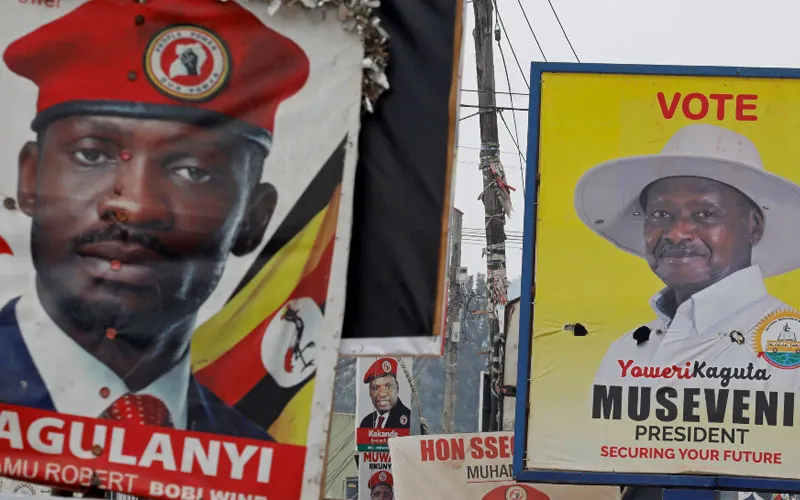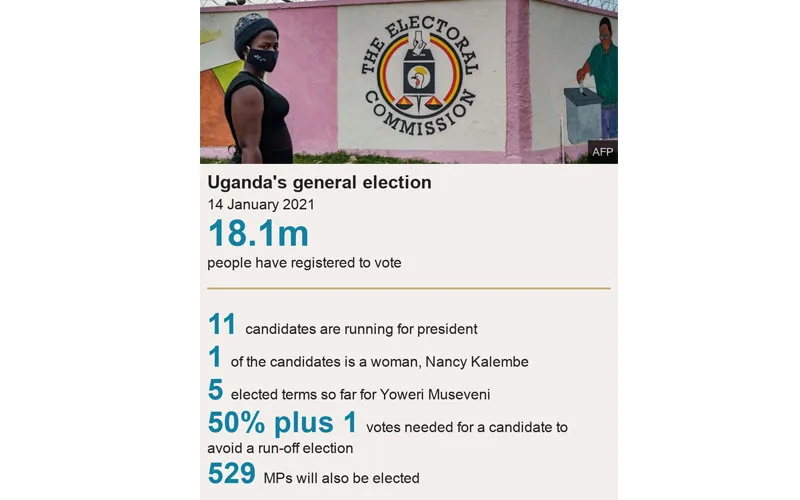Kampala, 12 January, 2021 / 8:30 pm (ACI Africa).
The leadership of the Uganda National Catholic Commission for Justice and Peace (CJPC) and the humanitarian arm of the Catholic Bishops of England and Wales, the Catholic Agency for Overseas Development (CAFOD) are appealing for peace in Uganda ahead of general elections slated for Thursday, January 14.
“With support from UK aid agency CAFOD, the Catholic Church through the National Catholic Commission for Justice and Peace is also involved in voter mobilization, voter, and civic education on radio calling for peaceful elections, anti-electoral bribery and anti-corruption messages,” CJPC Director, Fredrick Ssemwanga has been quoted as saying Tuesday January 12 interview.
Mr. Ssemwanga adds, “With CAFOD's support we have also built up the skills, knowledge and ability of Diocesan Justice and Peace Coordinators from the nineteen Catholic Dioceses of Uganda, who will act as national election observers.”
In the January 14 polls, Ugandans are expected to vote in presidential and parliamentary elections marred by political repression as singer-turned-politician Bobi Wine challenges President Yoweri Museveni’s 34-year rule.
“There is a lot of fear and anxiety on what may happen after the election on Thursday. This has been mainly due to the current pre-election violence in the country with attacks to civilians, media, and civil society,” Mr. Ssemwanga who doubles the Parliamentary Liaison for the Uganda Episcopal Conference (UEC) says.









